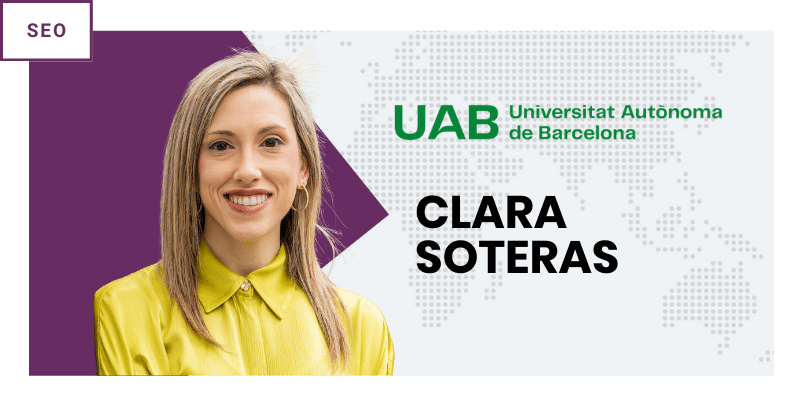- SODP Dispatch
- Posts
- SODP Dispatch - 7 November 2024
SODP Dispatch - 7 November 2024
Google’s algorithm appears to favor user intent over accuracy, ChatGPT is officially an AI-powered web search engine, what audiences really want + more

Hello, SODP readers!
In today’s issue:
From SODP: SEO opportunities and battles
Tools & Resources: CLS debugging tool + SEO Chrome extension
Tip of the week: Paywalls: to gate or not to gate?
News: Google’s algorithm appears to favor user intent over accuracy, ChatGPT is officially an AI-powered web search engine, what audiences really want + more
FROM STATE OF DIGITAL PUBLISHING
Clara Soteras Q&A: SEO Opportunities & Battles for Digital Publishers
By Saida Ayupova
In preparation for PubTech2024, we caught up with one of the panelists, Clara Soteras – former Director of SEO and Product at El Nacional and a professor at Universitat Autònoma de Barcelona.
Clara Soteras is an SEO for News expert and up until last month, she worked as SEO and Product Director at El Nacional, a Spanish news outlet, where she has created the SEO team from scratch. She had also set new workflows between editorial, business and strategy teams to increase traffic and visibility in order to enhance the revenue of the company.
Clara was also leading an editorial project related to AI and working to incorporate it into the newsroom.
TOOLS & RESOURCES
🛠️ Google Chrome DevTools CLS debugging tool
Chrome Canary has added a new "Layout Shift Culprits" feature that visually identifies page layout problems.
See more ▸
🔍️ Sprout SEO Chrome extension
Get a comprehensive view of on-page SEO elements plus Core Web Vitals at a glance and instantly determine indexability and canonical status.
See more ▸
BITE-SIZED ADVICE
By Vahe Arabian
🔒️ To gate or not to gate?
Despite what many consumers may believe, digital content isn’t free. Producing great articles, blogs, videos, and podcasts takes time and money; digital publishers must find ways to recoup these costs.
While paywall adoption has grown since the early 2010s, gating content remains a thorny issue, with most audiences still trying to avoid paying for access.
If you are thinking about implementing a paywall, here are some of the advantages and disadvantages to consider.
Advantages of paywalls:
Consistent revenue: Ad revenue volatility is hardly a new phenomenon. Subscriptions provide publishers with a relatively stable income stream compared to advertising.
Data ownership: Publishers with a successful paywall strategy have access to a swathe of first-party data that is becoming increasingly valuable in the face of the ongoing “pro-privacy” revolution.
Disadvantages of paywalls:
Requires quality, unique, consistent content: I’m not suggesting that having to produce great content should be a reason to avoid paywalls. But it’s essential to be realistic about the level of competition in the publishing marketplace.
Could hinder growth: Paywalls can be a great approach for sites with a preexisting audience willing to pay for their content. However, a paywall can impede the early stages of a start-up’s audience growth.
Bypassing is still possible: Typing “paywall” into Google will return a slew of articles on the first page that discuss how to bypass them while searching for “how to bypass a paywall” itself returns hundreds of thousands of results.
Paywalls are powerful tools for publishers, helping them generate revenue consistently while building comprehensive audience profiles. But that’s not to say they are the right choice for every publisher.
Creating a successful paywall strategy requires trial and error, as well as the will and resources to experiment with digital content to determine what truly resonates with readers. This isn’t always viable for new or smaller publishers.
WHAT WE ARE READING
Google Search Snippets Show Contradictory Information, Study Finds | SEJ
Sarah Presch, director at Dragon Metrics, discovered that Google’s Featured Snippets pull opposing statements from the same articles when users frame questions differently. Research shows algorithm favors user intent over accuracy.
Read more ▸
OpenAI’s search engine is now live in ChatGPT | The Verge
ChatGPT is officially an AI-powered web search engine. The company is enabling real-time information in conversations for paid subscribers today (along with SearchGPT waitlist users), with free, enterprise, and education users gaining access in the coming weeks.
Read more ▸
Ziff Davis study says AI firms rely on publisher data to train models | Axios
Leading AI companies such as OpenAI, Google and Meta rely more on content from premium publishers to train their large language models (LLMs) than they publicly admit, according to new research from executives at Ziff Davis, one of the largest publicly-traded digital media companies.
Read more ▸
What audiences really want: For journalists to connect with them as people | NiemanLab
Plus: How newsrooms are using generative AI, what makes news seem authentic on social media, and how to bridge the divide between academics and journalists.
Read more ▸
Google updates crawl budget docs for large sites with differing mobile and desktop pages and links | Search Engine Land
Google added a new best practice in its crawl budget documentation to say it is best practice to ensure all links are present on the mobile version, as it is on your desktop version, if your page. If you do not do this, the discovery of new pages can be slower.
Read more ▸


